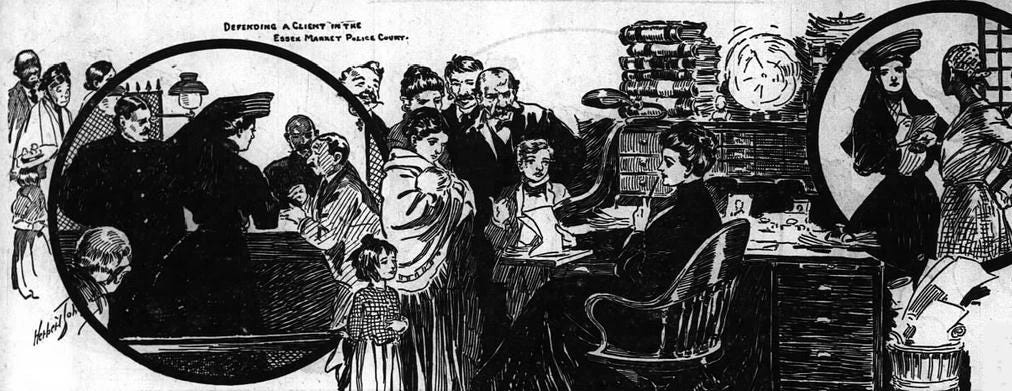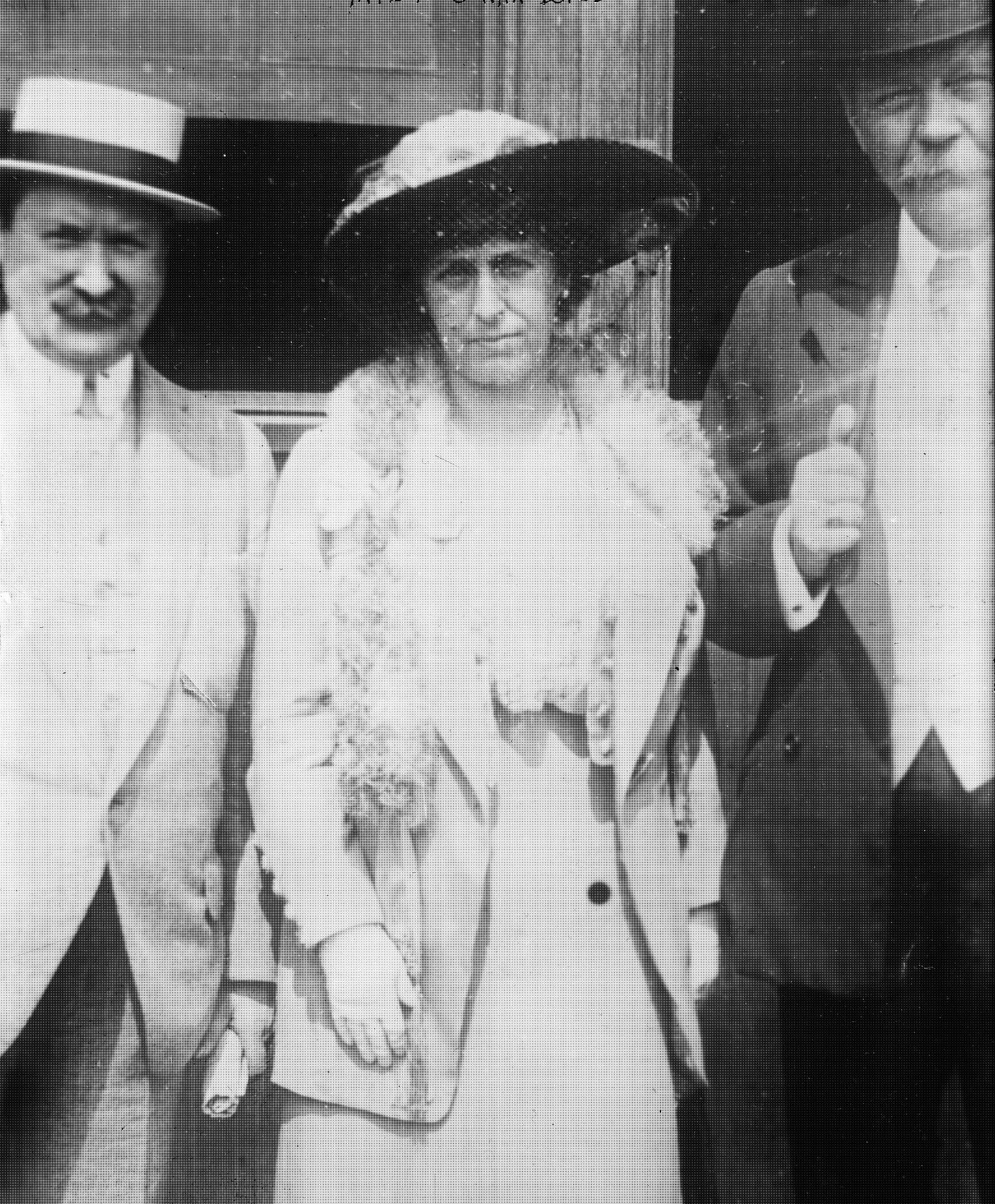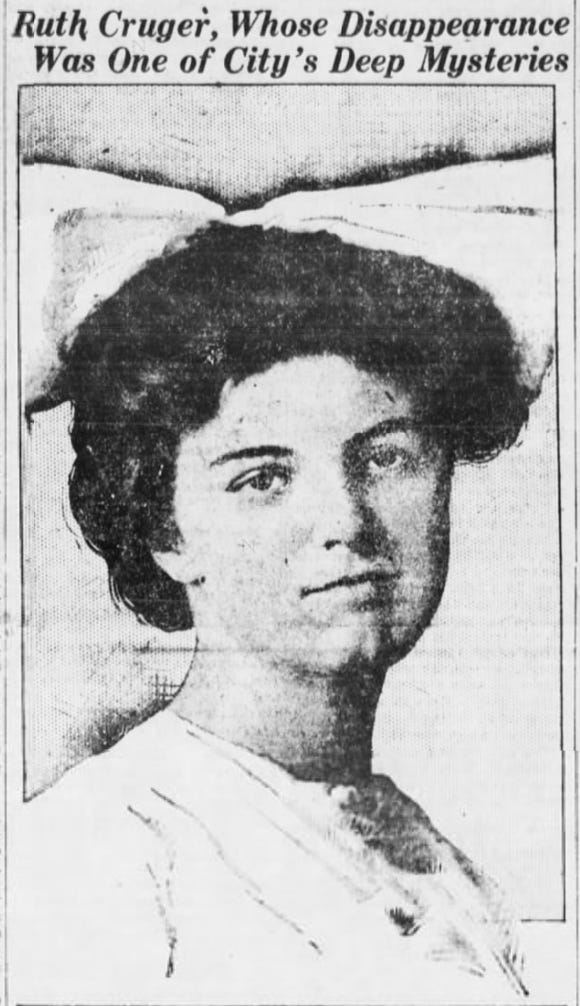Welcome back to SOURCE NOTES! It’s been awhile since I’ve done one of these, and what better way to get back in the swing of things than with Brad Ricca, author of MRS. SHERLOCK HOLMES? (As well as some other great narrative history books but this is the one I wanted to talk to him about.) Let’s get right to it…
Give me the thirty-second CliffsNotes Summary of MRS. SHERLOCK HOLMES.
A seventeen-year-old girl goes missing in New York the day before Valentine's Day, 1917. Her disappearance grips the city. They put her photo on the front page. Grace Humiston, nicknamed Mrs. Sherlock Holmes, takes the case. The book is the story of that case, but also of Grace’s background in becoming a lawyer and a detective and the first woman U.S. Attorney.
How did you find this story?
It was completely by luck. I was going through an old newspaper looking for stories about the Black Hand, and I read this article about Mrs. Sherlock Holmes and I said, I didn't know there was a Mrs. Sherlock Holmes. And I'm reading it and it reads like a Conan Doyle story. You have that double-edged moment where the first thing that goes through your head is, there's no way this is true. And the second thing is, I really want to write about this.
Do you remember where you found that article?
No. It was one of those millions of New York newspapers.
You did a good job transporting the reader to the gritty streets of early Twentieth Century Manhattan. And you relied primarily on historical images to recreate the physical atmosphere, is that right?
I'm a big fan of using photo reference for the setting. It makes it easier as a writer, but it also makes it way more encompassing to the reader. The New York Public Library has a ton. You can find stuff like fire insurance maps, which will give you the layout of things and help you really recreate what a particular street corner looked like. A lot of the story takes place in an old motorcycle shop, and I found all these great photos from inside the shop in an old pulp mag. I got really lucky.
The challenge of the book was that there aren’t really any primary sources on Grace Humiston.
She was this big time lawyer and really famous. So I just assumed she had an archive somewhere with her correspondence, and maybe I’d get lucky and there's a diary. But there was nothing. I mean, she was a lawyer and she didn't even have a will.
Was it that she didn’t keep records, or do you think things were destroyed at some point?
I hate to sound sinister about it, but I think she didn't keep things for a reason. I don't think someone came around after she died said, let's get rid of the evidence, and torched it all like in some 1940’s movie. I think she was a very private person, and I think that's reflected in her lack of any kind of archive. But I think it's also the fact that, while she seems real famous to me, at the end of her life, she wasn't famous. She was kind of cast aside, and she may have tried to give some of her stuff away and nobody wanted it. The only thing I ever found was, at Purdue there was a letter she wrote to Amelia Earhart.
Wow.
At one point I was like, I gotta chuck this book. I can’t write it. But then I realized the way to do it was to treat her like a mystery, to write all the way around her and let the reader try and discern.
Well you did a good job because she comes across as a very well-rounded character. How did you fill in the blanks?
I just focused on her work. I had all these cases she was involved in, and she was in the newspaper a lot and she did interviews, so I had some of her voice there. It was like big book of Sherlock Holmes with all these separate cases. I tried to make every chapter like a separate story, and that way her personality came out.
What sort of archives did you poke around in?
It was a lot of court documents.
So like, just contacting whatever records clerk in New York City who’s the keeper of these ancient transcripts?
Yeah, and there were a lot of little cases in New Jersey.
A lot of times the records from these old cases have long since been discarded.
There’s one scene at the end of the book where, at the New York Police Department, they’re just loading everything into the incinerator, all this evidence, just gone. But when you do find it, that makes it even better
What was your favorite thing to dig into?
The crime itself. I'm not like, you know, a true crime guy, and this was a horrible crime. But there’s something about piecing together the mystery. I found all these transcripts of confessions from a prison tower in Italy, and you’re reading this stuff and you’re just transported back.
How did you find that?
Man, I don't even remember.
But that stuff actually came from Italy, as opposed like, duplicates here in the U.S.?
Yes. I have a friend who's a scholar, and she works on plays in Italy, and she goes there every summer. And she was going to this specific area. I'm like, hey Barbara, can you take a look at this for me? And she found this stuff and translated it for to me, and found the ultimate fate of the person alleged to have done this.
You were the one who turned me on to those old vintage detective magazines of the thirties and forties. You relied on those as well, right?
I love that stuff. It wasn’t as immediate as the newspapers, and it would put a more lurid spin on things, but some of them had really good investigative writers and great photos you’d never see anywhere else. I always find stuff in the pulps that I never find anywhere else.
What were the main newspapers you worked with?
For this case, I mean, the Times did stuff on it, and I would always kind of use that when I needed something that was kind of like an anchor to the chapter. But I also liked all those other ones.
You mean the more sensational downmarket ones, like the World and the Journal?
Yeah. Sometimes they’d say stuff that was really nuts, just to sell papers. But sometimes some of those things would lead me to a clue that would pan out. You knew some of them had better sources than others. They’re considered the lesser papers, but for what I was trying to do, to inhabit the world of reporting on crime back then, that’s where the story lived, where it thrived.
Eight years later, is there anything you weren’t able to pin down for the book that still gnaws at you?
That's a great question, and a very cruel question. You know what? This is gonna sound really lame, but there’s a writer, Wil Haygood, who says, when you write the book, you close the door.







